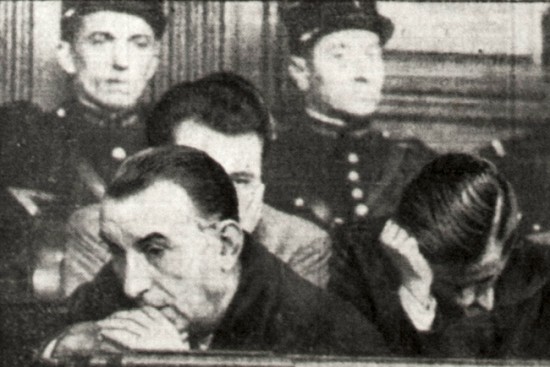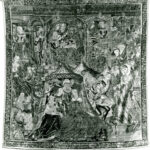Henri Lafont was a notorious figure in French history, known for his involvement in criminal activities and collaboration with the German occupation forces during World War II. Born on May 2, 1902, in Paris, France, Lafont would go on to establish a criminal empire and become a prominent figure in the French underworld.
Lafont’s early life and criminal career are shrouded in mystery, with limited information available about his upbringing and the beginnings of his criminal activities. However, it is believed that he was involved in various illicit activities, including theft, extortion, and racketeering, which helped him amass wealth and gain influence in the criminal underworld of Paris.
With the outbreak of World War II in 1939, France was soon occupied by German forces in 1940. Lafont saw this as an opportunity to further his criminal activities and exploit the chaotic situation. He established the “Carlingue,” a collaborationist criminal organization, which worked closely with the German Gestapo in hunting down and eliminating members of the French Resistance [1]. Lafont’s Carlingue became infamous for its ruthless tactics, including torture and execution, earning him a fearsome reputation among both his enemies and allies.
Under Lafont’s leadership, the Carlingue collaborated with the German authorities in suppressing resistance activities and gathering intelligence. They carried out numerous arrests, interrogations, and executions of resistance fighters, providing critical support to the German occupation forces [2]. Lafont himself was directly involved in several of these operations, using his criminal network and knowledge of the Parisian underworld to identify and capture resistance members.
Lafont’s collaboration with the Germans extended beyond his involvement with the Carlingue. He also worked as an informer for the German secret police, providing them with valuable information about resistance activities and individuals [1]. His close relationship with the German authorities allowed him to operate with relative impunity, despite the atrocities committed by his organization.
However, as the tide of the war began to turn against Germany, Lafont’s fortunes started to decline. In 1944, as the Allies advanced through France, Lafont and other collaborators sought to flee the country. They attempted to escape to Germany, but were intercepted by French Resistance fighters in the Vercors region [2]. Lafont and his associates were captured and subsequently handed over to the French authorities.
After the liberation of France, Lafont stood trial for his collaborationist activities and crimes committed during the war. He was charged with treason, war crimes, and crimes against humanity. In 1946, he faced a military tribunal and was found guilty of his crimes. Lafont was sentenced to death and executed by firing squad on December 26, 1946 [2].
Henri Lafont’s life and actions continue to be a subject of interest and study for historians and researchers examining the dark chapter of French history during World War II. His collaborationist activities and ruthless methods have left a lasting legacy, serving as a reminder of the complexities and moral ambiguities that emerge in times of war and occupation.
Sources
1. Henri Lafont, Encyclopedia.com
2. Henri-Lafont, Encyclopedia Britannica







